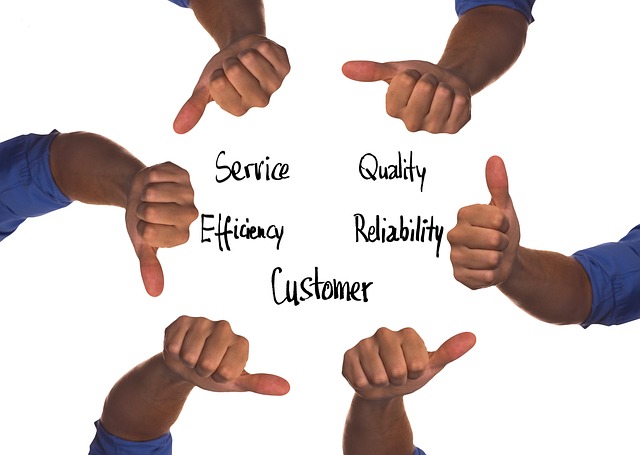Understanding Technology in Marketing
In today’s fast-paced world, technology has integrated itself into every aspect of our lives. If you consider how vital communication has become, it’s easy to see why businesses must embrace technological innovations to remain competitive. Effectively leveraging technology for marketing success is not just an opportunity, but a necessity. As we move deeper into the digital age, traditional marketing methods fade away, and businesses must explore various tech-driven strategies. This evolution invites marketers to innovate, adapt, and enhance their outreach. More than ever, consumers demand personalized experiences, and technology provides the tools to create those tailored journeys.
From social media platforms to data analytics tools, the options for marketing methods have expanded dramatically. Businesses have access to endless streams of data that can illuminate consumer behavior, preferences, and trends. By harnessing this information, marketers can create customized campaigns that resonate with their target audience. This shift represents more than just a change in tools—it’s a complete transformation in how marketing operates. If marketers want to achieve success, they must align their strategies with the technologies that will facilitate more engaging interactions with their audience.
The Rise of Digital Marketing Tools
The digital marketing landscape is rapidly evolving, and new tools pop up regularly to aid marketers in their quests for success. A plethora of software solutions exists that can help automate processes, track performance, and analyze user engagement. For instance, Customer Relationship Management (CRM) systems enable businesses to manage customer interactions efficiently. They are invaluable for building long-term relationships by providing insights that can guide marketing strategies.
Moreover, email marketing automation tools allow businesses to send personalized messages based on user behavior or demographics. Imagine sending tailored emails that cater to individual needs! These tools can enhance customer retention by nurturing leads through targeted communication. Similarly, social media management tools allow marketers to schedule posts, analyze engagement, and maintain a consistent brand presence across platforms.
As we delve deeper into technological advancements, we discover the importance of incorporating Artificial Intelligence (AI) into marketing strategies. AI algorithms can analyze vast datasets to predict consumer behavior, adjust campaigns in real-time, and even generate content. These applications not only save marketers time but also improve the effectiveness of their campaigns. Just think about the vast potential these digital marketing tools hold. They transform a traditional approach into one that is strategic, informed, and exceptionally effective.
Data-Driven Decision Making
The backbone of successful marketing lies in the ability to make informed decisions based on data. Data-driven marketing straightens the connection between marketing strategies and customer preferences. This approach enables marketers to create targeted campaigns, improve resource allocation, and optimize for higher conversion rates. Marketers must consider how collecting and analyzing data can redefine their strategies.
For starters, Google Analytics stands as a powerful tool for tracking website traffic and user behavior. This platform metaphorically sheds light on which marketing channels drive conversion and engagement. By grasping these insights, businesses can tweak their marketing efforts to focus on what truly connects with their audience. Furthermore, social media analytics tools reveal which types of content generate the most interaction. Such information informs marketers on best practices, creating an iterative cycle of ongoing improvement.
But data isn’t just about metrics; it tells a story. Marketers should dive into the motivations and behaviors that lie beneath the numbers. Segmenting audiences based on demographics, purchase history, and engagement patterns allows for hyper-personalization. Engaging with a targeted audience maximizes marketing efforts and generates higher returns. As businesses ship into data-driven decision-making, they not only improve campaign performance but enhance customer satisfaction by providing relevant content and experiences.
Enhancing Customer Engagement Through Technology
In the digital age, customer engagement dictates the success of marketing campaigns. Engaging customers encourages loyalty and strengthens brand reputation. Using technology, marketers can create interactive content designed to draw in consumers. For example, chatbots have emerged as a viable solution for customer interaction, providing immediate responses and assistance even outside business hours. By implementing chatbots on websites or social media platforms, companies can improve user experience significantly.
Moreover, businesses can leverage augmented reality (AR) and virtual reality (VR) technologies to create immersive experiences. Image a furniture store offering virtual room visualization, allowing customers to see how products would look in their homes. This technology not only facilitates engagement but also aids in decision-making, leading to higher conversion rates. With various forms of multimedia content at their disposal, marketers can appeal to different preferences, thereby maximizing reach.
Additionally, utilizing customer feedback tools can foster a two-way communication channel between businesses and their audience. Encouraging users to share their thoughts and feelings about products enriches the data pool while making consumers feel valued. As a result, businesses not only solicit feedback but create a community around their brand. Striking a balance between personal engagement and technology will undoubtedly lead to marketing success.
Social Media as a Marketing Powerhouse
Social media has fundamentally transformed how businesses interact with their customers. Once merely a platform for social interaction, it now serves as a significant marketing channel. Businesses must leverage social media not just for outreach but as a medium for relationship building. Social media platforms provide a unique way to showcase brand personality and create engaging content that speaks to target audiences.
Developing a strong social media presence provides businesses with opportunities to connect with consumers on a personal level. Engaging posts, live videos, and interactive stories can capture attention and generate conversation. Furthermore, user-generated content serves as powerful leverage; when consumers share their experiences with a product, it lends authenticity and credibility to the brand.
Furthermore, paid advertising on social media platforms enables businesses to target specific demographics. With advanced targeting options available, marketers can focus their advertising campaigns on the right audience, maximizing reach and engagement. Additionally, social media offers measurable results. Marketers can track engagement metrics such as likes, shares, and comments, allowing them to understand what resonates with their audience. As we see, social media is a key player in leveraging technology for marketing success.
Embracing Mobile Marketing
In our technologically advanced society, mobile devices are as vital as air. Statistics show that the majority of consumers access the internet through their smartphones. This fact compels marketers to embrace mobile marketing strategies. When businesses tailor their marketing efforts for mobile audiences, they tap into a vast market that’s often overlooked.
Developing mobile-responsive websites is a starting point. Users expect seamless experiences, and a website that doesn’t cater to mobile can deter potential customers in seconds. Furthermore, mobile-friendly email campaigns can enhance engagement if designed for small screens. Utilizing SMS marketing also presents exciting opportunities for instant communication with consumers, allowing businesses to send time-sensitive offers directly to phones.
Moreover, location-based marketing can capitalize on consumers’ mobile data. Marketers can send targeted promotions to individuals based on their physical location, enhancing relevancy. Such immediacy can result in increased foot traffic and conversions for physical stores. Therefore, embracing mobile marketing strategies is essential in leveraging technology for overall marketing success in our constantly connected world.
The Role of Influencer Marketing
Influencer marketing represents another avenue through which technology enhances marketing efforts. As digital landscapes evolve, the rise of social media influencers has created new opportunities for brands to reach audiences in authentic ways. Collaborating with influencers allows companies to leverage their established followership and credibility, making it easier to connect with potential customers.
The effectiveness of influencer marketing lies in its relatability. Consumers often view influencers as trusted figures, making them more receptive to recommendations. Marketers can align their brand with influencers who share similar values, ensuring that the partnership feels genuine to audiences. By doing so, businesses can create engaging content that resonates more deeply than traditional advertising methods.
Additionally, influencer marketing allows for diversification. Brands can collaborate with micro-influencers who boast niche followings, providing a cost-effective alternative. These influencers often achieve higher engagement rates due to their strong connections with followers. Overall, by embracing influencer marketing, businesses can tap into fresh narratives that heighten their outreach and credibility in the crowded marketplace.
Measuring Success Through Key Performance Indicators (KPIs)
To effectively leverage technology for marketing success, businesses must establish clear KPIs. KPIs act as navigational tools; they provide insight into how well strategies perform over time. Determining which metrics align with marketing goals serves as the foundation for measuring success. E-commerce businesses may focus on conversion rates, while brands promoting awareness might prioritize engagement metrics.
Moreover, KPIs also allow for the continuous optimization of marketing efforts. When marketers analyze these data points consistently, they can identify patterns, successes, and areas for improvement. This proactive approach leads to cyclical improvement, ensuring that marketing strategies evolve alongside both technological advancements and consumer behavior. Regularly assessing performance creates a data-centric culture that fosters innovation and growth.
In addition, using visual dashboards can help stakeholders easily grasp these insights. Visualization tools streamline complex data, enabling quickly accessible overviews of campaign performance. With a clear picture of what works, businesses can allocate resources efficiently and maximize returns on investment. The process of measuring success must be consistent and informative, empowering marketers to adjust their strategies and tactics as needed.
FAQs
1. How can I start leveraging technology for my marketing strategy?
Begin by identifying the right technology that aligns with your marketing goals. Evaluate tools for data analytics, automation, and customer engagement. Then, experiment with these technologies and assess their impacts on your campaigns.
2. What are the most effective digital marketing tools I should use?
Some popular digital marketing tools include Google Analytics for data tracking, HubSpot for CRM and automation, Hootsuite for social media management, and Mailchimp for email marketing. Choose tools that suit your specific marketing needs.
3. How can data-driven decisions improve my marketing ROI?
Data-driven decisions allow you to identify what works best for your audience, leading to targeted marketing efforts that maximize engagement and conversion rates. This optimization ultimately increases your return on investment by channeling resources into successful strategies.
4. What role do social media and influencers play in marketing technology?
Social media serves as a dynamic platform for engaging with audiences. Influencers amplify this potential by connecting brands to authentic audiences. Both avenues allow marketers to reach their target demographics effectively and build brand image.
5. How do I measure the success of my marketing campaigns?
Establish clear KPIs that align with your marketing objectives. Analyze metrics such as conversion rates, engagement, and return on investment. Regularly review these data points to adapt your strategies and improve overall performance.



